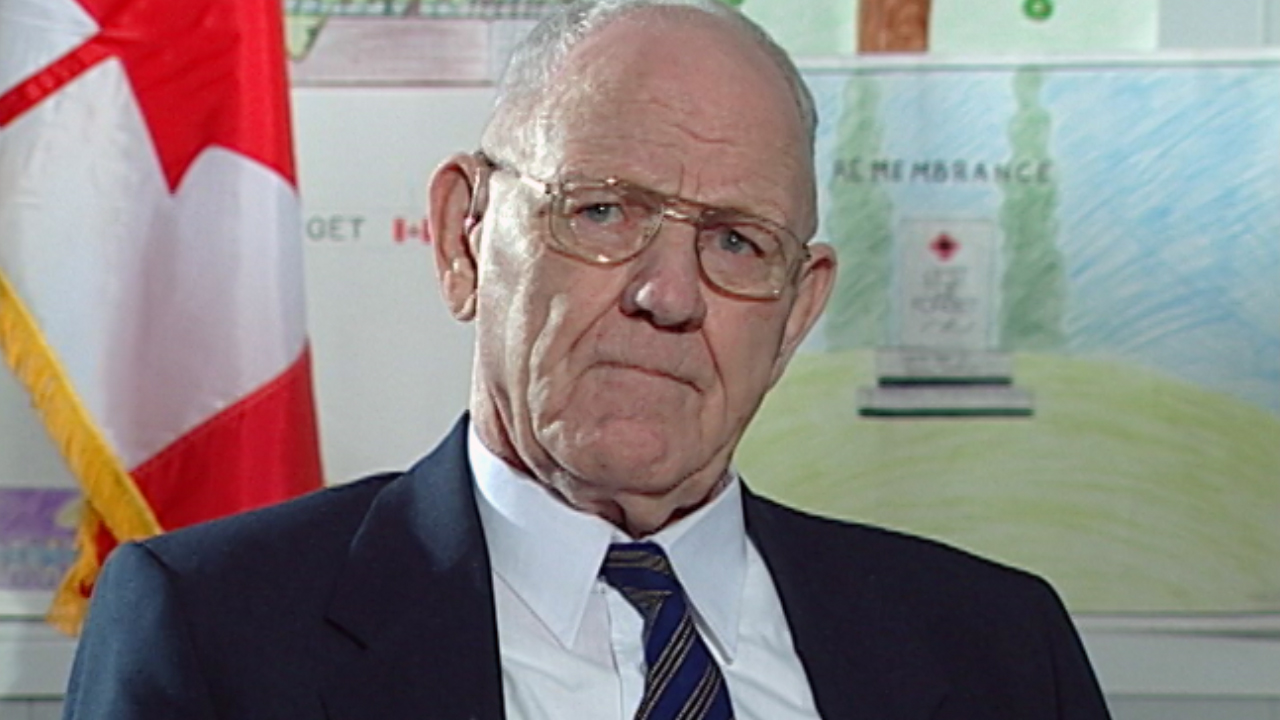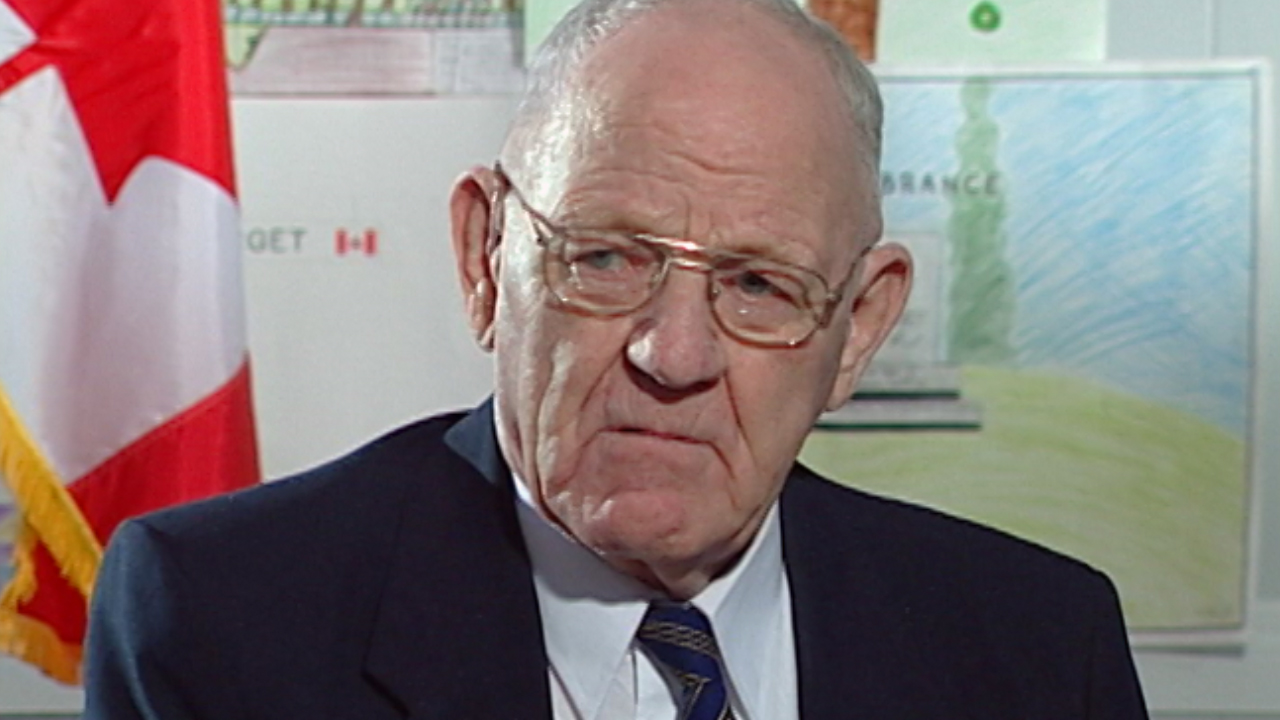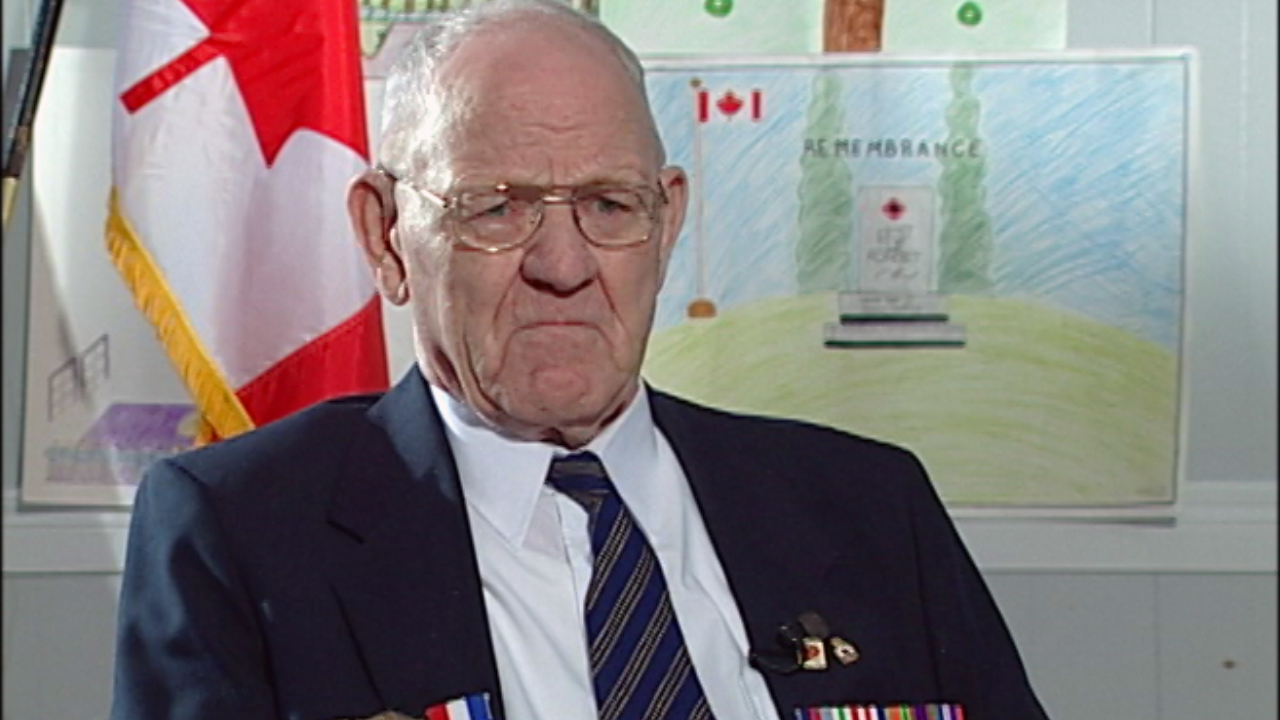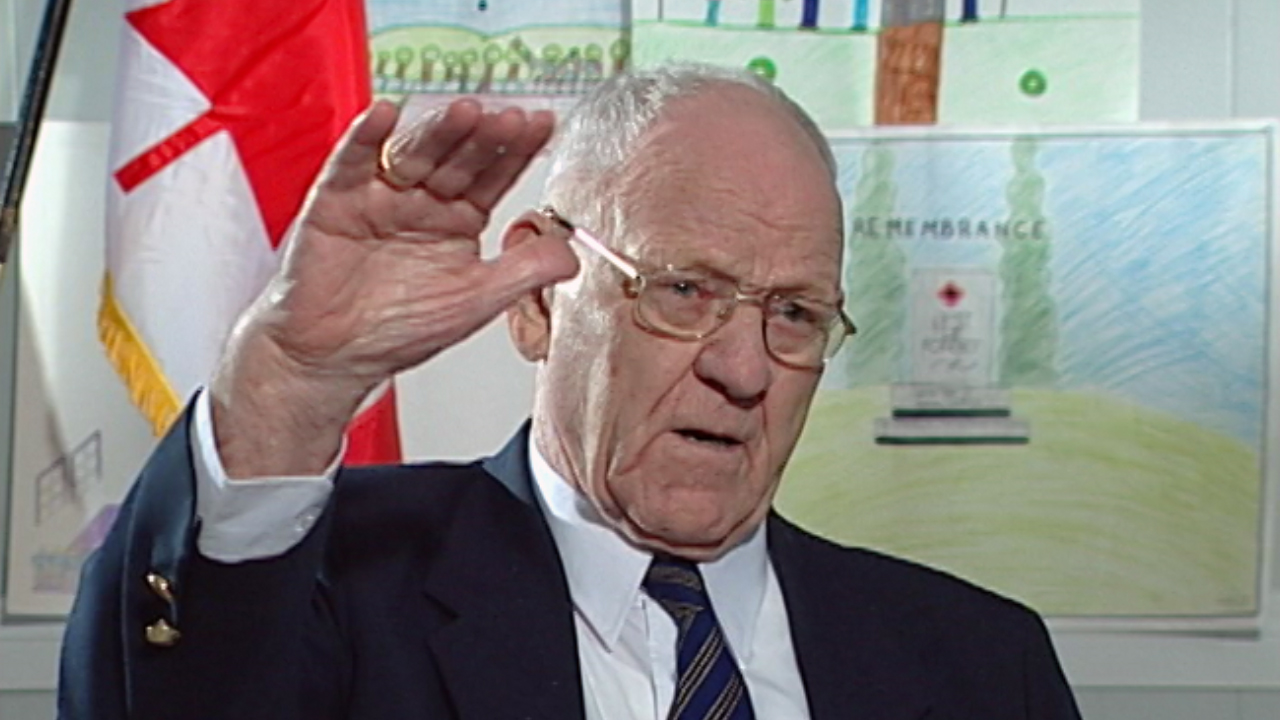Interviewer: Tell me about that campaign,
liberating Holland.
Well, it was a more of just a running battle.
And a lot of places there,the Germans broke
the dikes and flooded the area.
Well, the only place you could travel
was on top of the dikes, and it certainly cut
off an awful lot of ways to travel.
That's the only way there was to travel and,
of course, they kept any of those
places where there was dikes,
like that were travelling on,
they kept them covered with fire
all the time, artillery fire or something
like that, all the time.
So, they had it where it pretty well
had to be a night move.
But it was my experience in Holland,
that's what it was, was just from dike to dike.
In Amsterdam, now, we were the first troops.
The 1st division was the first troops
that was in Amsterdam, and it was just
getting through the city, that was all.
It wasn't the fighting or anything at all.
It's just … the people was just out …
they were just … they plugged the streets
that you couldn't … they just stopped
the convoy right up all together.
That was one thing there in Amsterdam.
The city there, that time. The people …
the civilians was rounding up the ones
that had patronized with the Germans.
And they were cutting their hair and
doing everything with them.
Trimmed them right off, and they were
chasing them around in the streets and
everything like that.
Interviewer: And you saw that?
Oh, yeah.
Interviewer: That must have been quite a
sight for a young man from PEI.
Yeah, but it just went along with the,
you know, it was just their ...
these people that had patronized
with the Germans, they had no
place for them in Holland.
And there must have been an awful lot
of them had an awful time afterwards,
because there were some of them
that couldn't do anything else.
They had to survive some way,
and done most anything, same as any of us.
We'd done most anything to survive.
Interviewer: So you fellows fought your
way through Holland to the Rhine.
Tell me about the actual crossing the Rhine.
That's quite an event in the history
of the world. Crossing over the Rhine?
Well that's all it was, was just that we
crossed over on this bridge.
There was no fighting.
It was just that we had to cross over on...
Interviewer: But you guys must have
felt pretty special?
Well yeah, it was all cleared out on the
other side because we never hit
one bit of opposition. It's the only way
it was to cross the Rhine River.
That's the only thing they had for a bridge.
The fighting was over when we got there.
As far as the fighting in Holland,
from the time we got there,
we were never into any.
Just little skirmishes and stuff like that,
was all that we ever had.
And I guess, probably, it was probably days
after the war was over before we realized
that the war was over.
When we got the word first,
everybody just pretty near went crazy.
But then, before we realized it was over,
we were still on guard afterwards.
After we got word the war was over,
we were still on guard.
But it was at least a week before
we realized we could let things go.






